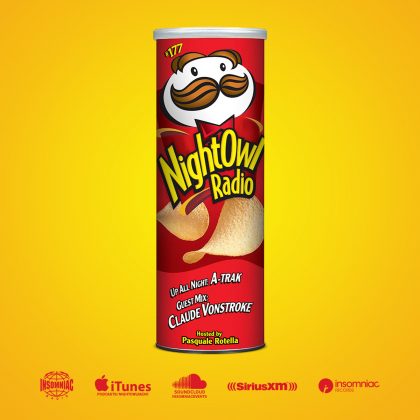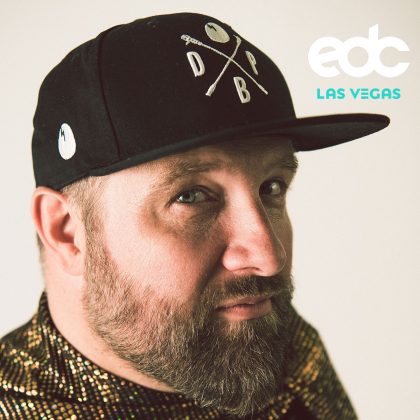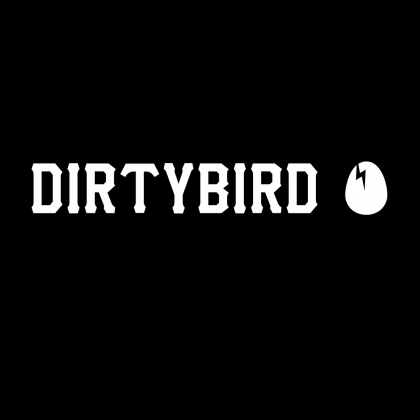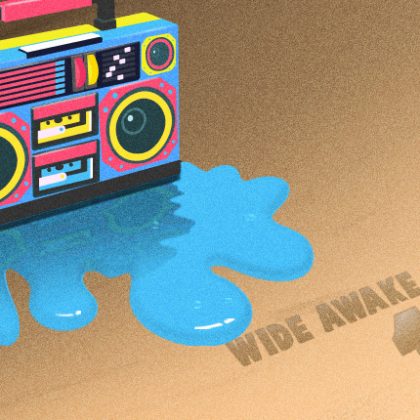Claude VonStroke: The DIRTYBIRD That Almost Never Was
The story of Barclay Crenshaw’s rise to notoriety—as cutting-edge tastemaker, DJ, producer, label manager, and all-around underground superstar known as Claude VonStroke—is an epic tale, to say the least. From his humble beginnings in Cleveland, jamming out to local radio disc jockeys, to jet-setting purveyor of that chunky, funky, DIRTYBIRD sound, the ongoing evolution and success of Barclay and the “booty house” sound he’s helped spawn continue to drop genre-defying grooves that quite simply can’t be fucked with.
Having just celebrated its 10th year in existence, the homegrown, do-it-yourself ethos that has characterized the DIRTYBIRD imprint from the start seems to hold true even as it has transformed into one of the most highly rated house, techno and bass imprints around. For those who don’t know, it’s West Coast hip-hop, dirty bass, house, funk and electronica all mixed into a funky stew that bridges influences as varied as Whodini and Spoony G to Led Zeppelin and Ed Rush and Optical.
“People would ask me to rap at parties… I was like, I’m not going to be the novelty act, you know?”
Fresh off rinsing Escape last weekend and preparing to unleash his Get Real project with none other than Green Velvet this weekend at EDC Orlando, Insomniac touches down with the bearded birdman himself to get an insider’s look at the long and often twisted journey that led Barclay to finally finding his groove as Claude VonStroke.

Take us back to Cleveland, where it all began. What kind of music were you listening to at the time?
I was obsessed with this jambox my friend bought, and so I had to buy one just like it. It was a Panasonic mono jambox from the Sears catalog, as there was obviously no internet back then. Once I got that in my room, I would always listen to this totally ridiculous radio DJ in Cleveland called Uncle Vic. Then when we moved to Detroit, I got into [radio DJ] Mojo, who introduced me to Run-D.M.C., Beastie Boys, Prince, Juan Atkins, James Brown—it was basically a music education. That show was incredible.
Remember, there’s still no internet, so I’m just buying cassettes at this time. I got super into hip-hop, and I would just ride my bike to the downtown area of Detroit, and they would only sell hip-hop cassettes at gas stations. They wouldn’t sell it at the big chain stores at the time, unless it was like Run-D.M.C. or something. But the gas stations had everything, and that’s where I got all my original stuff that I got into: Erik B & Rakim, Public Enemy, Biz Markie, all that stuff.
This is about the time you started rapping, I imagine. How old were you at the time?
I was 12 years old. I got a four-track recorder, which at the time was super expensive, something like $380. But back then, that’s like $1,000 in today’s money, probably. So I got this four-track recorder, and I would put two jamboxes together and beatbox over it, and then rap over the beatbox on the second pass. I did all this in my bathtub, just because the reverb in there made it sound better.
I actually made a whole hip-hop album in high school. My high school had a really cool music program, and they let me do an electronic music independent study, so I basically hijacked the program. I had advanced to using drum machines and a sampler, an Emu Emax that took me a year to save up for that only had 11 seconds of mono recording time. But I figured it out and made a whole hip-hop album.
What did your parents think of all this at the time?
This whole time I was playing cello, and my parents wanted me to be a classical musician… all the way through this, while I’m making hip-hop and everything. I did cello for 14 years and piano for nine, and my parents had no idea what I was doing with hip-hop; they were like, whatever.
“The main lesson that I learned is that you’ve got to surround yourself with a crew of people; you’ve got to have a support network. That’s kind of why DIRTYBIRD works.”
But they were still really into the arts, so they didn’t discourage me at all. They just didn’t get it. When I got to college, it was totally different. I was just thrown into a new thing. This was just around the time when, if you were a white rapper, it was a super novelty. So, people would ask me to rap at parties just because it was funny, and I was totally over it immediately. I was like, I’m not going to be the novelty act, you know?
Is this around the time you discovered drum & bass?
Yeah, after college, somebody gave me a drum & bass mixtape, and it completely blew my mind. Drum & bass as a scene had already been going for a while, but I had just totally ignored it, and I was just like, holy crap. The mix was from a friend, and it was all dark stuff like Ed Rush & Optical, but before D&B was all super aggressive. The sound design in particular was amazing, and there were tracks that would really hold back for long periods of time with these really eerie soundscapes.
So, I got really into drum & bass and started DJing as DJ Tree. But I was still in Michigan at the time, and it was completely—how do I say it?—I was the only person doing it. Nobody wanted to hear it. I had a bunch of problems where my hard drive crashed, and I lost a year’s worth of work. So I gave up that as well.
Sounds like there’s a lesson in here to keep evolving and never give up!
The main lesson that I learned is that you’ve got to surround yourself with a crew of people; you’ve got to have a support network. That’s kind of why DIRTYBIRD works. All those other times, I was the only one, completely out on my own. I had no idea what I was doing. There were no references, no night that I’m going to where I can hang out with other people who liked the same thing. Who knows, maybe it could’ve all worked if I had just run into like five dudes that thought I was a good rapper (laughs). You know what I mean? Who knows what would’ve happened.
You moved to Los Angeles and started working in the film industry. Were you working on music as well during this time?
I actually got a couple songs in a movie that I was a production assistant on, and then the studio cut them out of the movie a week before the movie was going up. I had literally worked as a PA during the day and made music at night and not slept at all. I was just like, fuck. So I quit again. I was like, it’s just time for me to get a job, dude.
While I was working on films, I was doing everything from editing to location to PA to driver. Then I was an assistant editor in San Francisco at a place that did TV commercials for Men’s Wearhouse. Then I helped this guy open an editing house and DVD replication company, and then I made this film, because I was like, how am I not going to fuck up this time? Like, what did I not do correctly the last few times?
So, I made this documentary using the editing house’s equipment, where I would just interview every famous DJ that would come through San Francisco. I put the whole project together on DVD, which I knew how to author and all that. Then I ran out of money, and I couldn’t license the songs, so I would start making the songs that went with each artist I was interviewing. So, I had to make songs that sounded like Derek May, Orbital, Miguel Migs…
From there, how did DIRTYBIRD come to life?
I met my to-be wife around that time, and she got me super high-paying, short-time shooting jobs. I was really good at shooting video by then, and editing and copying—I knew all the steps because I had done all the steps in all my jobs. She was working for LeapFrog, which is this educational toy company, and I would shoot videos, which would be of a five-year-old kid playing with a prototype toy made out of plastic, seeing if they liked it. I would do the effects and the music and then make 300 VHS tapes, and taking it to shopping malls to show moms or focus groups to see which toy they liked the best. But I would get bank. I would get like 10 grand to do it!

It would only take three days to do them, so it was like huge money to me. What I was really doing, though, was saving up to start my own label. The lesson that I learned from making my documentary was that you had to have enough money to make it through four records, because all the distributors were full of shit and you wouldn’t get paid for basically 10 months.
You learned this through the interviews with DJs and producers on your documentary?
Yeah, I learned everything. All these labels I saw starting up were falling apart and not put together, and they didn’t have good branding. So, I just skipped all these steps. I basically went to grad school for dance music making that movie. I saved up like 25 grand—which is enough to print four records, have artwork, do a bunch of promo—and I still had a job, so I could supplement it that way. But that was it. It worked.
Also, my wife gave me a year where she paid the rent. I can’t leave that out. It’s a huge deal! It doesn’t work otherwise. I feel bad, because there are so many people that are good at stuff, but if all the pieces don’t come together or they don’t know how to put them together, they never come together and they end up just working at a job. It just never happens.
You could’ve easily ended up making promo videos the rest of your life.
It was definitely going that way, and I was already 32—which is old for a DJ.
It’s really inspiring to see how focused you were, even through all those curve balls life kept throwing your way.
I knew that I didn’t want to do what I was doing. It was more like that. I saw some people who I knew that were DJing, and I was like, dude, is that the best job ever or what? You’ve got to get that job.
At this point, did you have a vision of DIRTYBIRD and what kind of music it was going to represent?
That’s where Christian, Justin, Worthy, Fernando and this whole group of friends come in—that support group thing I was talking about earlier. We were all in this same mindset that we didn’t like what was getting played in San Francisco at the time. We all kind of liked grimy, dirty house records that had a little more funk and edge in them, and we all agreed for the most part on what’s good.
Everybody was just kind of going for it on their own, but then we ended up going for it as a collective, and because I had started a label, we had a real vehicle where people could actually be heard and sell records.
Were you consciously trying to create a “new” sound?
Definitely not. I just thought we were putting fun and edge into the sound that was there. It kind of got picked up [by the media] as a new sound. There’s nothing really new in house music, because it’s been the same beat for 50 years (laughs).

How do you describe the DIRTYBIRD sound?
I say that it’s house music influenced by hip-hop and drum & bass; and it’s not G-house.
Speaking of which, your Get Real project with Green Velvet is really taking off!
It’s definitely a real thing now! It’s not taking over my schedule, but it’s definitely something special. We have a big New Year’s push coming down the line. We did Escape, and now we’re off to EDC Orlando.
Do you text each other and work out what you’re going to play ahead of time?
We text each other, but it’s not about what we’re going to play. We have short conversations here and there about things, but they’re not like, “You start out here, and then we’re going on a journey through space and time.” People would love it if they thought we had those conversations! Let’s just say we do, then.
What else should we be looking out for from you and the rest of the crew?
We’ve got a Will Clark single out today called “Turn It Up”; it’s really awesome. He’s had a really solid year, and he’s about to do a DIRTYBIRD tour with Billy Kenny that we’re sponsoring. Then hopefully after that, we will run an Ardalan tour. And I’ll be doing 10 billion things, as usual.
Have your parents finally let go of their dream of you becoming a classical cellist?
I don’t think they thought I was going to be a cellist, but I did break their heart when I sold the cello to finish paying for the documentary. That was kind of one of those things: If I don’t sell the cello, I don’t finish the movie; if I don’t finish the movie, I don’t do the label. I’m happy I sold the cello. Maybe I’ll get another cello someday. Who knows?
Follow Claude VonStroke on Facebook | Twitter
Follow DIRTYBIRD Records on Facebook | Twitter | SoundCloud





